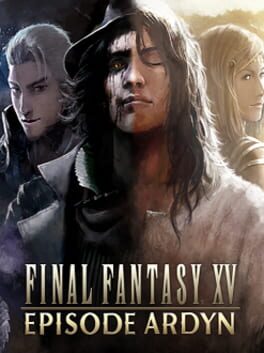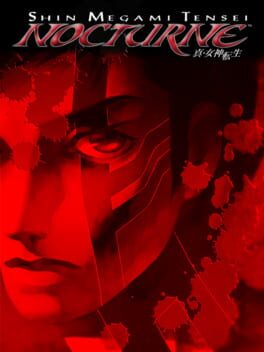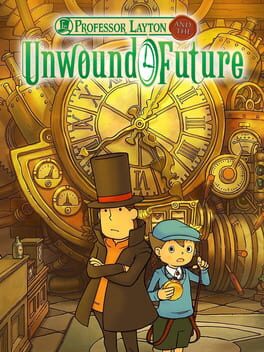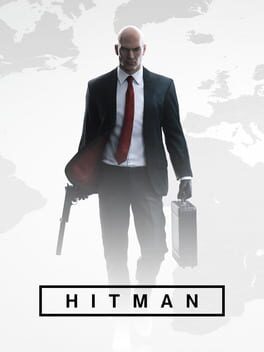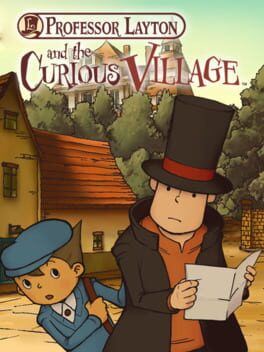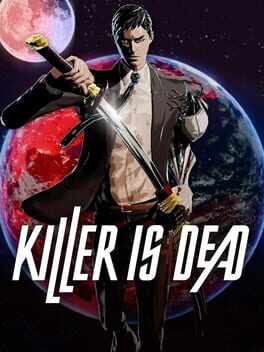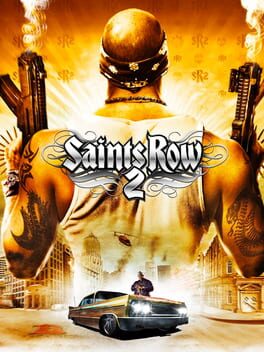Nyth_Grandbeard
Episode Ardyn is the final piece of DLC for the post launch line up of content for the Final Fantasy XV media amalgamation. What was originally supposed to be the start of a new story line that would've seen our cast of characters get a happy ending instead was transformed into a more straightforward prequel to the main game. In this DLC we learn more about Ardyn's backstory, but before you play this game it is highly recommended you watch the Episode Ardyn Prologue animation on youtube on the official FFXV youtube page, which is done by the same team who did the FFXV Brotherhood animation. It provides more context for the story by showing things that are only vaguely hinted at in the actual DLC content itself. Combined it presents a really compelling backstory for XV's main antagonist that leaves you really questioning who is the bad guy by the end. The gameplay is rather straight forward as Ardyn has similar abilities to Noctis, and then some such as demonification of your enemies and teleporting. The bulk of the DLC takes place in what amounts to 4 blocks of Insomnia, where you can wreak havoc to the citizens of the city and rack up points. In battle we are also greeted to a catchy song sung by Lotus Juice of Persona series fame, and it really puts the whole experience together in an awesome, yet sorrowful package. I highly recommend Episode Ardyn to anyone who plans to revisit XV, or as a first timer. If you have already beaten the game before I recommend starting with the DLC first as it sets an entirely different tone to the rest of the game's events but if you are a first timer I recommend saving it for the end as it does spoil some late game story points. I think as it stands Episode Ardyn is the perfect end cap to the many ups and downs of the existence of the expansive FFXV universe.
2007
No More Heroes is a one of a kind game that defied all odds and ended up being a massive success for Suda51 and the rest of Grasshopper, but how does it stack up to the rest of the kill the past series? NMH is a very interesting game in that it feels like an amalgam of various different gaming tropes such as character action combat, open world exploration, and convoluted plots which doesn't only feel like a jab at other developers but also a nod to Suda's previous works. Despite it's glaring commentary on the hyper violence and prevalent tropes in not only in gaming but also anime and movies, the game's messaging in my opinion falls a little flat for me in comparison to the grandiose theming that Suda tackled in his previous works such as Killer7 and Silver Case. But taken as it's own independent work, it does achieve what it sets out to do and for that I can applaud it, but at the same time I was just left wanting a little more out of the game's not so subtle commentary. The gameplay on the other hand is really inventive on how the flow is broken up which is where to be able to go onto the next mission you must complete part time jobs to make enough money to fund your next assignment. However, while this mechanic does over stay it's welcome a little bit by the end, it still is something I will always fondly remember this game for as it is something I hadn't really seen before in a game like this. My only major complaints other than the theming is that the over world map really serves not too much of a purpose other than a buffer between missions since there isn't really a whole lot to see or explore. Overall NMH is a good game, and a fine addition to the KTP lineage, but it may leave some KTP fans a little disappointed with the story.
A truly underappreciated masterpiece of the PS2 era. Everything from the artwork, music, graphics, and gameplay hold up extremely well today. This game also laid down the foundation in which modern Megaten is built up from with the Press Turn System. Without this game we wouldn't have a Persona 5, or SMTIV.
The Unwound Future is perhaps one of the best puzzle games I have played in recent memory. The puzzle selection is just superb, the environments to explore are amazingly detailed for a regular DS title and it's all amplified by the wonderfully zany and cartoony world that Professor Layton and crew inhabit. The story this time around takes some emotionally impactful twists and turns i'd never to expect to see in this particular series. The best way I could describe the unwound future is that it's both parts gleeful, and sad and does both with grace. The twist at the end of this game is perhaps the most unbelievable out of the bunch but by this point it's to be expected, and it works perfectly to convey a resonant and impactful story that will surely leave you thinking about the events that just unfolded for years to come. My only major complaint is that i'm not 100% on board with how Layton acts so dismissive around Flora, but it seems like i'm not the only one of that opinion. Otherwise this is an excellent journey and great way to cap off the original trilogy of the Layton Series. Next is the Prequel trilogy, and i'm really curious how they will approach the story from that angle.
2009
A truly timeless classic that breathed life into a whole genre. While some people may have a problem with how this game is more linear than it's decedents, I find the linear level design to be truly engaging and keeps you on your toes. The MIDI sounding music is cheesy in the best possible way, and the gameplay is some of the most addicting to play.
25th Ward is the sequel to Silver Case and is the 4th game in the Kill the Past series following Silver Case, Flower Sun and Rain, and Killer7. One thing I really enjoy about 25th Ward is the characters, the new cast of characters all feel very engaging and fun, as you learn their stories and their relationships. Unlike the first game, this game is split into 3 story arcs, as opposed to 2. First we have Correctness which is the main story line featuring Shiroyabu, and Kuro, two detectives in the titular 25th Ward as they investigate the dark going ons happening around the ward. Next is Placebo which puts us back in the shoes of an amnesia raddled Tokio Morishima, as he tries regaining his memories, and finally we have Matchmaker which follows Tsuki, and Osato, to members of the Regional Adjustment Bureau in charge of making sure everything stays on track in the 25th Ward. Stepping back and looking at it as a whole, the game's story is very good and is a worthy follow up to the first game however, the plot in my opinion meanders a bit too much for my liking. For the most part the original Silver Case was a very tight and concise story with very little fat around the edges however this game is nearly double the length, and you can feel it. The game just over stays its welcome a little bit in my opinion and drags on a bit much. There are some segments in the story that by the end were completely pointless and could've been cut to greatly reduce the length of the game. Otherwise I think 25th Ward is worth your time, and is a great game for any Suda, and Kill the Past fan.
2016
An interesting, and engaging soft reboot for the Hitman franchise. From the ashes of Hitman Absolution, comes this game which is a refreshing take on this sandbox like genre. The freedom given to the player to try different takedowns is a really addicting aspect of this game and allows for a ton of replay value. My major complaint is the story is a little muddled and lacking for the most part. I wish they would have put a little more time into fleshing out the overall narrative, but given how constrictive Square Enix was to their western developers at the time I can see why the story was cut a little short. Overall my experience is a positive one and I can't wait to see what the next game in this reboot series has in store!
2020
An excellent, yet flawed game. There is a lot to be enjoyed in this wonderful Open World RPG. As someone who didn't buy into the prelaunch hype, I went in with 0 expectations, and was simply blown away by the lovable cast of characters you interact with in Night City. Much like other titles before it (like death stranding) this game fell victim to high expectations before launch. There are bugs a plenty in this game, yet I didn't feel like it was an end all be all. Other games of this genre (namely Fallout New Vegas) are also riddled with similar bugs yet receive not as much hate. Hopefully this game will see a second life years down the line with some of the bugs ironed out.
As the first entry in the Professor Layton saga, The Curious Village is both a unique, interesting, yet simplistic take on the Point and Click genre of games. It's presentation as a cartoony European adventure in a mysterious and hidden Bavarian styled town is incredibly cozy and enjoyable. This combined with the folk-y accordion soundtrack carries the game for the most part. The story is a little simplistic, but engaging none the less, however the major twist on what the secret of the village is left me with a kind of odd and sour feeling and is probably my least favorite part of the game. The puzzles were fun enough to playthrough, but some puzzles felt too similar to others thus making some of the later ones too easy. All in all Professor Layton as a series has a fun cast of characters and a good enough formula that can easily be improved on, so I can't wait to see what the series has in store next.
2016
The Silver Case is (officially) the first game in the Kill the Past Saga, and is also the first game by Grasshopper Manufacture. This game is also the first true VN I've managed to sit though, and I don't regret it one bit. The game follows several people from the Heinous Crime Unit as they pursue the elusive serial killer, Kamui Uehara, and his influence over the 24 Wards of Japan. And that's all I'll say as It's hard talking about the game without giving too much away, but the game has a really interesting and engrossing story that is split in two parts through Transmitter, and Placebo. These two halves slowly merge together the further you go. The gameplay, yes there is gameplay, is actually not what I expected. We get to play the game through a first person dungeon crawling perspective and I find it very fun to explore and interact with the world but unfortunately these segments are a little short for my taste. My biggest problem however, with this game is the fact that it ends on a bit of cliff hanger, but I can't hold it against it too hard as there are 2 follow ups that continue the story. So overall Silver Case is a great introduction to this universe that would later foster the No More Heroes games, and I highly recommend it to VN and NMH fans alike as there really isn't anything like it out there.
2017
2005
Killer 7 is a highly unique and interesting game for it's era, and as a chapter in the "Kill the Past series." This game is easily one of the most unique, and impactful games on the Gamecube in terms of visual presentation. The cel-shaded graphics give a precursor look to what we would later see in future Kill The Past games such as No More Heroes, but with a more rough angle to it. The gameplay features you running on a set of preset paths where you can chose a direction to go once you reach an intersection. This style of movement took a little getting used to, but it also gave me a hint of the feeling of playing the previous Kill the Past entry, The Silver Case, so after a couple levels I got the hang of it. The combat requires you to stop in place to aim down sights like a rail shooter and hitting targets before they attack you and blow up. Successfully killing enemies gives you thick blood which is then used to trade into levels to further buff your character of choice. Speaking of characters, you play as the titular Killer 7, who are a group of world renowned assassins who all possess the body of Harman Smith, an old man in a wheel chair. You are able to switch between any character in the killer 7 via a safe room through the TV or through the pause menu, each character with their own sets of strengths and weaknesses. My personal favorite to play as were Dan Smith, and Mask De Smith who use a revolver, and grenade launcher respectively. The story primarily follows the exploits of Garcian Smith, one of the "personalities" that reside within the head of Harman smith as he goes on a mostly episodic adventure taking out various targets to help the prevention of terrorism in the United States. The story starts to explore the origins of Garcian and the other Smiths towards the end of the game, culminating in a truly mind bending and interesting conclusion that is sure to stick with anyone for years. Killer 7 is a worthy game to add to your backlog, and a great game in the Kill the Past Series. My only complaints are that I wish the story had more focus during the middle portion of the game, that's not to say that the episodic structure is bad, or that I didn't enjoy those missions, but having them tie in to the overall narrative would've made the game that much better. Also some of the songs in this game are absolutely stunning, but for some inexplicable reason Suda (the game's director) decided the best course of action was to put the best song in the game, Rave On, in a short 5 second section, really an odd choice. But regardless Killer 7 is a game that will forever hold a special place in my memory, and I cannot wait to see what the rest of Kill the Past has to offer.
2013
Killer is Dead is a truly interesting experience, it's hard to convey how playing this game feels other than seeing a whole world through a tiny window. As you play through the game you definitely get the sense that the organizations and characters you interact with have such deep and detailed back stories that we only catch a passing glimpse of, and part of that is thanks to this game's incredibly short run time. My playtime clocked in just over 5 hours, and in that brief time I went on a journey that felt like 1 million miles per hour. We step into the shoes of Mondo Zappa, an assassin for the Bryan Execution Firm who are contracted through the US Government. If this sounds familiar it should as this is a plot point very similar to the Killer7 in Killer7 and it should be clear by the title that this game is a spiritual sequel of sorts to Killer7. I know that some people are hesitant to consider this game as a follow up to Killer7 or as a part of Kill the Past, but as I played through this entry in the Grasshopper backlog it became abundantly clear that it is. There are so many call backs to Killer7 but also so many plot conventions from Kill the Past appear in this game that it's hard not to consider it as such. The gameplay is pretty simplistic as far as character action games go, but that doesn't mean it's bad. For a game who's runtime can be completed in one sitting, this simplistic combat hardly overstays its welcome, and provides just a enough depth for the player to master to pull off some really cool combos. The story, as nonsensical as it is, still has some emotional beats to keep you engaged and thinking about this game for a while. The graphical style as well is an evolution on the hard cel-shaded style from Killer7 featuring dark shadows, but with an added hazy effect to give this game a very dream like quality that I thoroughly enjoyed. Any fan of Grasshopper Manufacture, or the Kill the Past series must give this game a try, as there is no real risk outside of 5 hours of your time on a weekend.
2022
Elden Ring is the newest game from prolific developer From Software, and is the next step in evolution for the Souls series. The game is set in the world of the Lands Between where a legendary artifact called the Elden Ring is shattered and split amongst several Gods and Demi-Gods. You play a nameless Tarnished, a person who has been exiled from the Lands Between, who goes on a journey to collect all the shards of the Elden Ring and assume the Throne of Elden Lord. Along the way you will encounter various NPCs and locations that will help shape and weave your journey to one of many different endings. The gameplay is fundamentally the same as standard Souls-Like fair with parries, blocking, backstabbing, and stamina management but with added elements such as jumping, and horseback riding/combat. These two minor adjustments add a lot more depth to the Souls formula than what you may initially anticipate as jumping allows for a new style of dodging and platforming, and the horse allows for quick traversal and quicker combat. The platforming and quick traversal go hand in hand with this game's approach to the world you explore. Unlike Souls games prior which were either linear worlds, or interconnected levels, this game takes on the challenge of tackling a large open world, and is mostly successful with it. Unlike other open world games like Breath of the Wild or any of Ubisoft's recent offerings, the open world is densely packed, and if you're never more than a stone toss away from a point of interest or item; that is at least for the first region and all of it's encompassing areas. As you get further and further into Elden Ring, the less open it really gets, and by the end of it, you just end up playing a regular souls game with little interconnected areas, and very little wilderness to explore. Perhaps this is due to From Software's tried and true excuse since day one, "Time Constraints", but i'm not sure I buy into that anymore as From Software are big enough to be their own bosses, and could take as long as they needed to complete their vision. If the second half of the game was as solid as the first, i'd say this game is damn near flawless. But unfortunately it couldn't keep the momentum up. Now that is not to say the second half is bad, in fact it is way far from it. As a more standard Souls Experience the second half of the game provides, i'd say it's better than some of the worst areas of Dark Souls III and for that I am willing to forgive and forget. If we ever get an Elden Ring 2 I truly hope From Software doesn't give into pressure and make the game they want to make from start to finish. Because what's here in Elden Ring is truly something magical, and if it could have a more consistent world I think it would be one of the best games ever made.
2008
Saints Row 2 is the follow up to Voliton's 2006 open world sandbox crime simulator, Saints Row, and they wasted no time expanding the scope, and story telling if this game compared to it's predecessor. The game still maintains the comedic tinge that the first game established while going down a more dark, and twisted route than before. We regain control of our Playa from the first game, who now takes on the reigns as the Third Street Saint's boss, and he is not messing around. In the years he was in a coma, all of the city of Stillwater has fallen into the hands of new and upcoming gangs and corporations, and the Playa wastes no time reminding the new gangs who the Saints are and reclaims the city for themselves. There are several moments where the Playa goes off the deep end and does some pretty heinous murders, and crimes as it seems the coma he endured may have left some screws loose. But even though there are plenty of depraved and grim moments to be had throughout the story, the game doesn't forget it's comedic roots as it takes pleasure in making jokes out of dark situations, and it never really seems to take itself so seriously where you'll really be feeling bad about any of the crimes you may commit. Much like the first game there are plenty of customization options and activities for you as the player to enjoy. While the game is still not as fantastical as later entries, it still delivers a fun and engaging time that anyone who is a fan of any of the other saints games or GTA games will be left with a good time.
